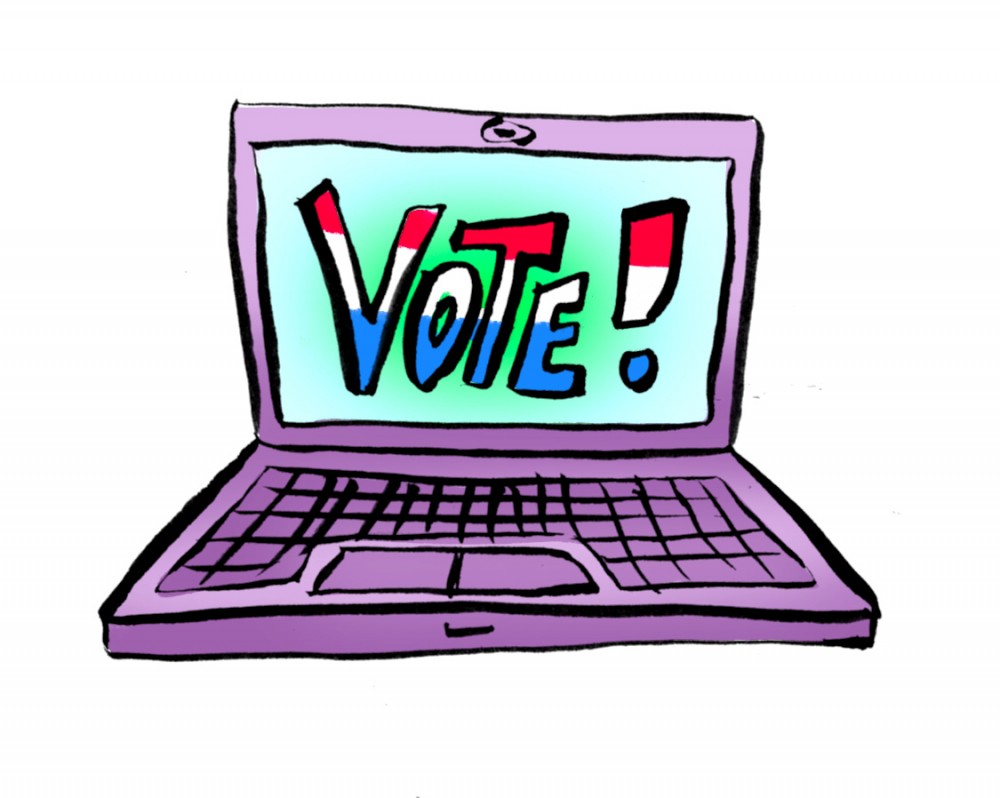Landing Page
Special Projects
This story is part of a series of specially designed stories that represents some of the best journalism The Post has to offer. Check out the rest of the special projects here.

11/7/2018
Contrary to what some people believed during the humble beginnings of computer technology, the internet is here to stay. Similar to technological advances in the past, people from a variety of professions have eagerly jumped on board with the internet and taken advantage of all that it has to offer. This includes political leaders from across the country, who are using the Internet in new, evolving ways.
Elections differ in candidate platforms and voter turnout during every cycle. Technology, a driving force behind elections, changes based off of the time as well. Dr. Lauren Elliott-Dorans, Assistant Lecturer for Political Science at Ohio University, said that the popular tools used to reach voters depends on the time period.
“TV ads became prevalent almost as soon as we had television. Before that it was radio ads,” Elliott-Dorans said. “Campaigns are really adaptive when it comes to new technology to reach voters, especially doing it cheaply.”
Precursing the internet and its use on mobile devices were telephones. Campaigns have historically used phone banks for calling voters up, Elliott-Dorans said. Today the use of phone banks for campaigns is already decreasing due to cell phones.

Marcus Pavilonis | ILLUSTRATION
“It’s harder to get a hold of people and even harder to get them to answer because now everyone has caller ID and they know it’s an unknown number,” Elliott-Dorans said.
Beginning with the race for the democratic primary for president in 2000; the internet has been a tool used for campaigning, mobilizing voters and gathering campaign volunteers.
“In terms of mobilizing volunteers, the internet has been tremendously helpful,” Elliott-Dorans said.
The internet also serves as many OU student’s main tool for finding information on candidates. Adelina Miller, a sophomore studying middle childhood education and theater, said that the internet is how she primarily learns about politics.
“I look up stuff on Google,” Miller said.
Many candidates not only use the internet, but apps to help with their campaign efforts. While 2000 Democratic candidate for president Howard Bean used the website MeetUp, the Obama campaign in 2008 had an app for campaigners, Elliott-Dorans said.
“You didn’t really need to step foot in the campaign office, which changes the dynamic of things,” Elliott-Dorans said.
Politicians are also taking advantage of social media networks to reach out to their constituents.
“(Social media) allows you to communicate more directly with possible constituents, not just about your platforms, but to highlight your personality,” Elliott-Dorans said. “Politicians are in a better position to signal their personalities and their tendencies to voters in the use of these kind of more democratic platforms.”
Some students at Ohio University do not interact with candidates on social media. Miller said that she tries to keep social media fun.
“I try to not look at (politicians’) stuff,” Miller said.
For voters, the new role the internet plays in elections can mean increased pressures to be politically active. Studies show that social media has led to increased social pressures for people to go out and vote, Elliott-Dorans said.
“I vote and stuff, but it’s not something I’m that passionate about yet,” Malie Curry, a freshman studying integrated science education, said.
Citizens can also register to vote online and can find information about their polling location. With such a large sea of information available to voters online, the threat of disinformation and fake news continues to become a more prominent concern.
“One of (the dangers) is people not being savvy enough to know what’s a fake news story versus a real news story and what’s satire versus what’s not,” Elliott-Dorans said.
Curry said that she can generally spot fake news when faced with it.
“If something doesn’t seem right, it’s probably not,” Curry said.
For Miller, a story she’s unsure about means researching the topic.
“If I see something that I think is maybe real, I’ll look more into it,” Miller said.
What Elliott-Dorans sees as the biggest problem with the Internet today is people’s ability to self-select their news. Around the world, people can access news stories from every angle, but generally speaking, they choose not to.
“(People are) usually interested in feeling supported and seeing messages that confirm their existing attitudes and hanging out with like-minded people,” Elliott-Dorans said. “When we do that, our attitudes actually become far more extreme. They’re less rooted in reality.”
A possibly even bigger danger is that despite the vast amount of political news available to people online, they’ll ignore politics altogether.
While Miller and Curry both don’t follow political figures on social media, Curry does engage in political discussions and watches speeches.
Despite all of the possibilities the Internet opens up for campaigning and politics, physical conversations still prove to be the most effective route for engaging voters, Elliott-Dorans said.
“Time and time again, if we’re talking about persuading voters and mobilizing voters, it’s that face-to-face contact that’s been demonstrated to be the most effective,” Elliott-Dorans said. “That’s usually the best way to go.”
Landing Page
This story is part of a series of specially designed stories that represents some of the best journalism The Post has to offer. Check out the rest of the special projects here.